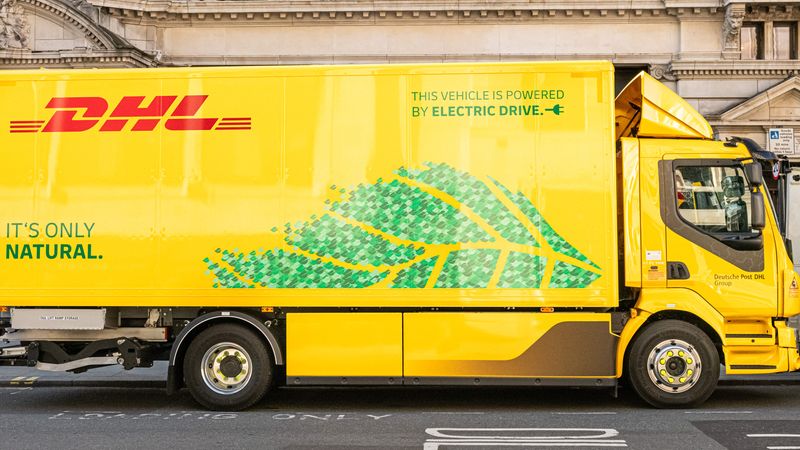Grow your business with the Discover newsletter
Logistics advice & insights straight to your inbox
Subscribe now
Amidst a global paradigm shift towards environmental sustainability, businesses worldwide, including those in Pakistan, are under a magnifying glass, particularly in terms of Environmental, Social, and Governance (ESG) performance. The surge in demand for recycled products highlights a broader inclination towards sustainable product packaging, recycling plastics and more.
For Pakistani enterprises, this translates to an imperative to adopt eco-friendly measures such as utilising recyclable materials and championing practices that reflect a commitment to environmental concerns. As businesses worldwide enhance their focus on recycling ideas, Pakistani businesses must realign their strategies to stay competitive and eco-conscious.
Sustainability is not merely a buzzword; it represents a profound shift in corporate priorities and global consumer expectations. With the increased demand for recycled products, businesses are actively seeking recyclable packaging materials and eco-friendly packaging solutions.
Moreover, the rise of ESG reporting underscores this transformation, offering a platform for enterprises to showcase their dedication not only to environmental sustainability but also to social responsibility and ethical governance. As businesses increasingly engage in overseas shipping, considerations like product packaging become even more critical, calling for robust strategies and collaborations with partners to ensure international standards are met.
Recent data from The Express Tribune paints a compelling picture of the waste management scenario in Pakistan: out of the 30 million tons of municipal solid waste generated every year, around 50% is theoretically allocated for recycling and reuse.
However, these figures vary dramatically across regions. Urban centres might see rates soaring to 80%, but in contrast, most rural regions record only nominal recycling activities. This waste comprises a diverse array, from metal and paper to plastic, emphasising the vast range of potential recycling ideas and the importance of implementing solutions like eco-friendly packaging using recyclable materials.
The drive to recycle materials isn't just an environmental whim. Beyond the indisputable ecological advantages such as waste reduction and resource conservation, recycling directly aligns with the rising market demand for recycled products.
In an era where environmental sustainability is not just appreciated but expected, businesses can truly distinguish themselves by embracing sustainable product packaging and other eco-conscious practices. Leveraging recycled products and eco-friendly packaging can provide companies with a decisive competitive advantage, catering to consumers who prioritise sustainability in their purchasing decisions.
Norpark International emerges as a paragon of sustainable business practices in today's market. Having established a dedicated stitching and printing unit in 2019, Norpark ventured into creating tote bags, aprons, and a range of other products crafted from 100% recycled cotton.
This commitment to promoting sustainable recycled products exemplifies their dedication to environmental sustainability. With every business decision driven by a conscious effort to prioritise the planet and its people, Norpak ensures that only the most environmentally friendly materials, including recycled or upcycled options, are integrated into their handmade product line for international shipping, showcasing a robust response to the increased global demand for recycled products.
Their dedication to eco-friendly methods sets them apart in the market, presenting a compelling case for businesses to follow suit.

As businesses recognise the importance of sustainability, it becomes crucial to weave recycling into their core operations. This is more than a trend – it's an imperative.
More than ever, there's an emphasis on eco-friendly packaging. By integrating recyclable packaging materials into the product life cycle, businesses cater to the growing demand for recycled products. This approach does not just resonate with the eco-conscious consumer but also offers an avenue for cost savings, merging the benefits of sustainable product packaging with practical business solutions.
Beyond just a corporate responsibility, waste audits illuminate the path to both eco-friendliness and cost-efficiency. Adopting a rigorous waste management plan diminishes overheads and solidifies a company's commitment to environmental sustainability. This proactive approach caters to the foundational reasons for recycling waste materials and the broader ethos of sustainability.
Aligning with suppliers that prioritise recycled products is an impactful step in a business's eco-journey. By consciously sourcing materials that are recyclable or have already undergone recycling, businesses not only champion the environment but also potentially enhance their financial bottom line, tapping into the innovative world of recycling ideas.
A business' environmental impact isn't determined by policies alone but also by its people. Ensuring employees are well-versed in what recycling is and its best practices is essential. This cultivates a company culture rooted in sustainability, galvanising collective action and fostering a shared responsibility towards our planet.
The future of recycling is intertwined with technological innovation. Harnessing AI-driven waste sorting mechanisms, advanced recyclable material collection methods, and state-of-the-art recycling machinery can significantly augment a business's recycling efficacy. By staying abreast of these technological leaps, companies can seamlessly integrate environmental sustainability into their operational fabric.
To enhance your recycling initiatives and lessen your environmental footprint, consider aligning with a logistics partner that values sustainability. DHL Express Pakistan stands at the forefront, ardently integrating sustainable shipping solutions and investing in pioneering technologies that reduce the carbon impact of overseas shipping and logistics operations. Our electric vehicle fleet, combined with our commitment to sustainable aviation fuels, plays a pivotal role in diminishing greenhouse gas emissions, uplifting air quality, and forging a path towards a more sustainable future.
By collaborating with DHL Express Pakistan, you're not only harnessing our eco-friendly shipping solutions but also amplifying your dedication to adopting recycling practices and establishing sustainability as a fundamental business principle.
Such a commitment resonates with the increasing consumer preference for businesses prioritising environmental responsibility, setting you apart in a competitive and progressively eco-aware marketplace. Engage with DHL Express Pakistan by opening a business account today and explore the sustainable avenues we offer for enduring business prosperity.